Join or Sign In
Sign in to customize your TV listings
By joining TV Guide, you agree to our Terms of Use and acknowledge the data practices in our Privacy Policy.
5 Times The Witcher Subverted Tried-and-True Fantasy Tropes
And why that is SO cool
Happy Witcher Week! From Dec. 15 to Dec. 22, TV Guide and sister sites Gamespot and Metacritic are celebrating everything The Witcher. We have reviews, explainers, and everything you need to get ready for and break down The Witcher Season 2, which premiered Dec. 17 on Netflix. The following story is part of that celebration, and you can enjoy all of The Witcher content across sites right here.
[Warning: The following contains spoilers from The Witcher Season 2. Read at your own risk!]
Andrzej Sapkowski is a master of the high fantasy genre. Anyone who wants to disagree is free to challenge the title but I'd urge them to take a look not only at the sales numbers for his books but the fact his work has been translated into multiple languages and his universe reimagined as a game series, two live-action television projects, and an animated feature before they get into the ring. His secret? As a writer myself, I can assure you first and foremost, he's worked his ass off. That said, he's also very, very good at something only a select few authors do flawlessly: write exquisitely in a genre while also lovingly tearing it to shreds.
Let's be honest: high fantasy is epic and sprawling and gorgeous and magical and it's also bizarre and impenetrable and completely absurd. Who decided names needed apostrophes anyway? Like, seriously, who's idea was that? Who knows how to ride a horse the first time they jump on one? Have you ever ridden a horse? Let me tell you something, some of them are straight- up assholes and they are not having you on their backs no matter how fast Destiny says you need to be up that mountain. Logistics are a thing. So are: mosquitos, needing to pee, hating camping, not being able to decide which books to bring, and Being Over It.
Geralt of Rivia Is Actually a Terrible Witcher According to The Witcher Rules
My point is, high fantasy tends to focus on towers and shining armor and kissing and when people arein dire straits, they're very romanticly dire which is great but…There's also something to be said for books like The Witcher series that set up similar frameworks and then skewer them mid-action for either dramatic effect or comedic potential. The former surprises us, reminds us we don't always know things are ultimately going to be okay. They add a degree of tension to the story that makes immersing ourselves in them tense and exciting in a way engaging with other high fantasy stories aren't.
One of my favorite things about Netflix's The Witcher series is the ingenuity the writers show in translating the spirit of Sapkowski's playful satire into the scripts by both choosing events from The Last Wishand The Sword of Destiny (the main source material thus far) that defy expectations and focusing on characters who seem as though they'll adhere to standard fantasy tropes then end up shattering them entirely.
Here are some of the greatest trope-subverting hits:
Paladins Don't Say F–k
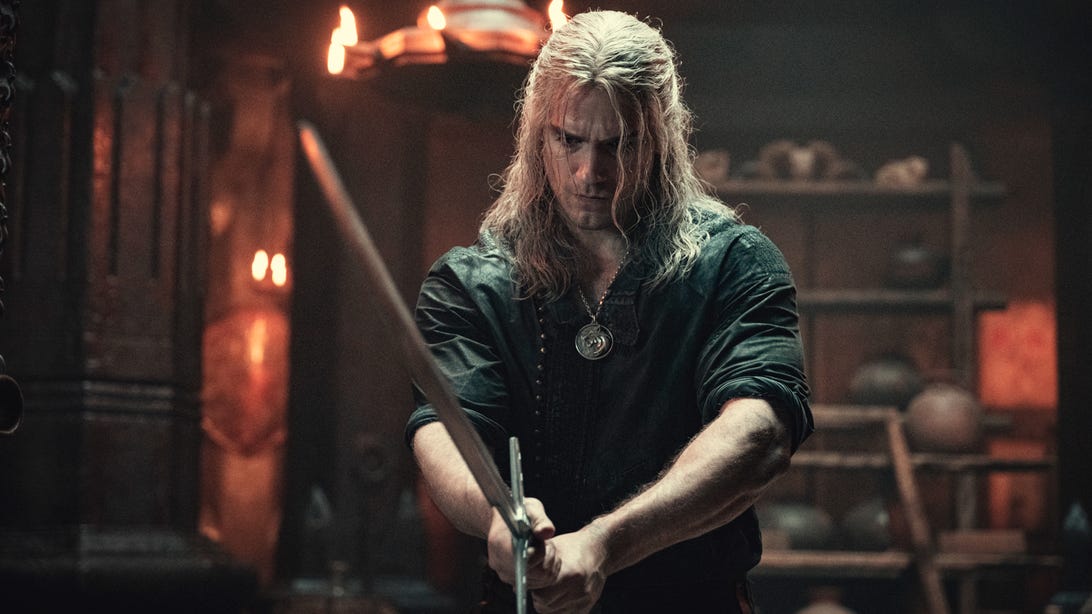
Henry Cavill, The Witcher
Jay Maidment/NetflixEvery paladin who ever has been and ever will be rolls over in his grave every time Geralt of Rivia (Henry Cavill) cusses. Your standard paladin has one job and that's to fight for good by combating evil and defending the helpless. They're typically part of a religious or spiritually-minded group with a mission statement to that effect or, occasionally, the last order member standing or a knight errant. Longswords and hammers are a paladin's best friends, they enjoy shining armor, and often have the additional sobriquet of, "The Tank," added to their given name. Unlike other hero types, paladins don't put stock in rehabilitation; evil is for killing. Those are the rules and as lawful good aligned dudes, paladins are unlikely to negotiate; good is good but it isn't always nice.
Geralt is actually a better paladin than he is a witcher, which by no means makes him a good paladin. He drinks, he swears, he does drugs, and he fights, ostensibly, for neither good nor evil, but for money. Now, those last two are per the rules of his order which is one of filthy, inebriated, sex-crazed mutants, but they are technically a brotherhood so there's that. Remember too that while most humans view monsters as inherently evil, Geralt takes a different view and refuses to kill those with whom he can negotiate, those quietly living their lives, and endangered species. And occasionally one of the season's big bads when he realizes her motivation isn't all that different from those of the people he cares about. Whoops. Chaotic neutral, he does what he wants. He does use a longsword and he is, for sure, a tank. And he does protect the innocent. When he feels like it. Or doesn't have anything better to do.
And that's why we love him.
The biggest tell that Geralt lacks the heart of a true paladin, though? This season, he not only admits to Jaskier (Joey Batey) that he needs help but apologizes to the bard and smiles at him all in the midst of a single conversation.
The Hot Witch? Sure, Watch Me Set That Guy on Fire
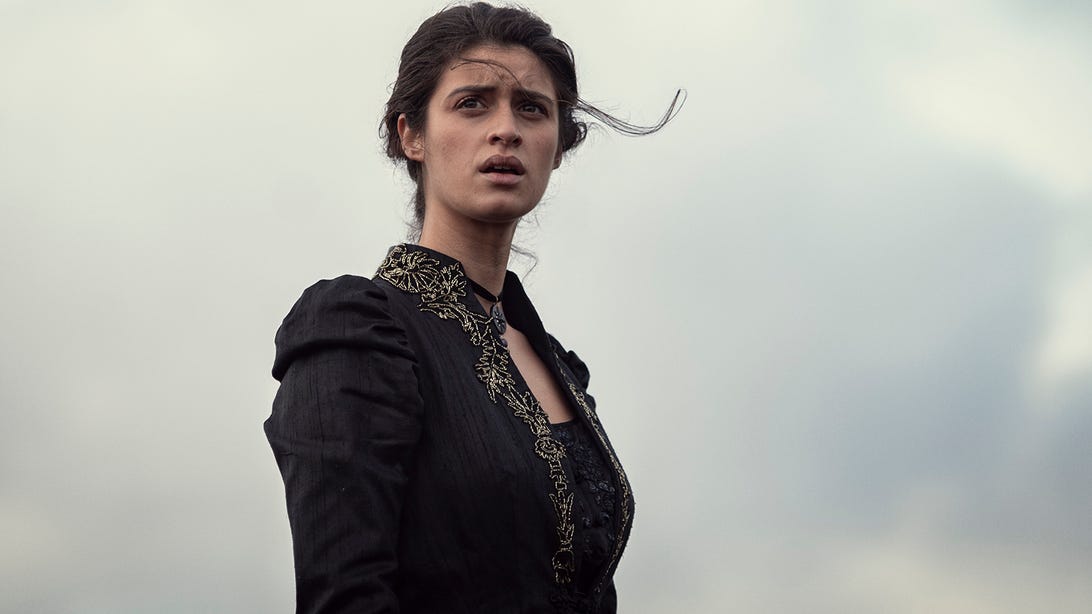
Anya Chalotra, The Witcher
NetflixIs Yennefer of Vengerberg (Anya Chalotra) a hot witch? Yes. Yes, she is. One of the key features that distinguishes this trope from other witch types is that hot witches don't start out that way. Neither literary nor TV Yennefer knew she was a sorceress until she was well into her teens and while none of the girls at Aretuza were puffy skirt, bubblegum magical girls, Yennefer's transformation was more dramatic than most (it was also much more dramatic and problematic on the show than it was in the books). Like other hot witches, including her sister sorceresses, Yennefer is significantly older than she looks and uses magic to stay youthful and beautiful, even selling her secrets to the general populace when she finds herself short of cash. She certainly fits the "mysterious, strange, sexy, elegant, and charming," parameters.
Yennefer diverges from the hot witch trope, however, in that such characters are typically cast as "loveable rogues," or "affably evil." Yennefer wouldn't be caught dead in such a one-dimensional trap, how dare! Such descriptions presume she cares what other people think of her and, really, only a privileged few have that much influence over this strong, powerful sorceress. Her greatest concern is achieving her goals on her terms and while she may play along for the sake of convenience, she isn't going to let a relationship with another person define her. "Loveable" and "affable" imply a certain frivolity that Yennefer is happy to put on like one of her incredible dresses but she'll shed the disguise just as easily, and with great pleasure, to reveal the brilliant, calculating, mastermind beneath.
The Chosen One With a Choice
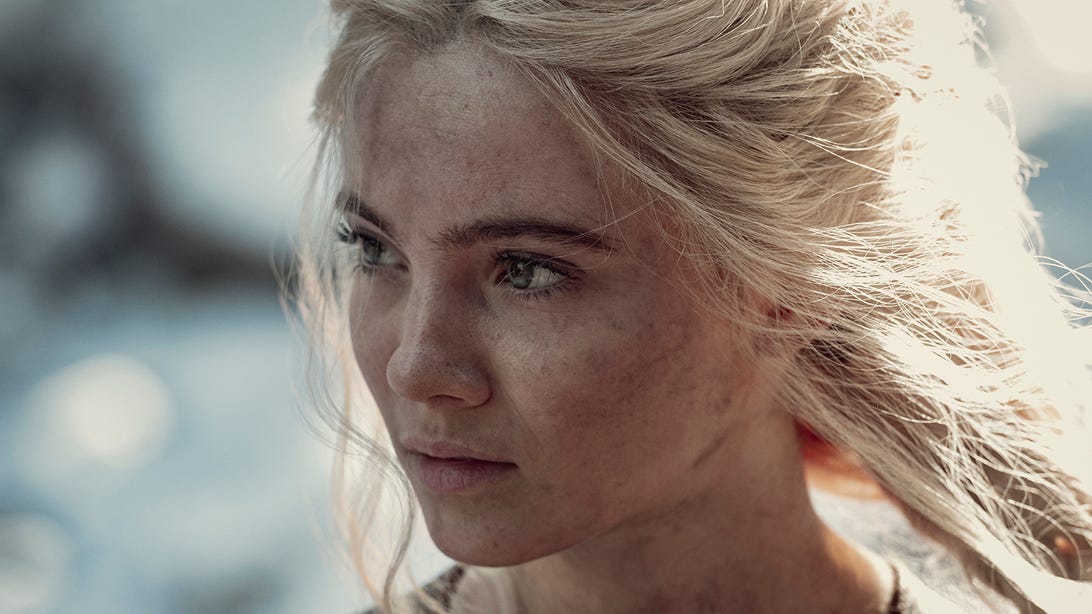
Freya Allan, The Witcher
NetflixThe Chosen One is typically the only one capable of resolving the plot though there can be some confusion about what, exactly, she's been chosen to do. The duly destiny-selected usually fall into one of two categories: the long suffering hero or the well-fed, well-dressed, sacrifice. Every so often, the villain turns out to be the designee, which is my favorite set-up because it's mayhem.
Regardless of the chosen one's alignment and personality, their exalted position doesn't mean showers of buttercream frosting and danmei. I mean, that would be one of my requirements if I was the chosen one, but I have to think if I was I'd also have a cool sword and a nicer house, even if that house was a castle that had been taken from me by my evil uncle. "It Sucks to Be The Chosen One" is a common subset of this trope because being designated often means difficult training, being hunted either by the villain or by people who have decided your powers make you dangerous, all of your loved ones being brutally murdered, or dying accidental but horrific deaths, and you carrying around massive amouts of trauma, which doesn't excuse you from your destiny no matter how hard you kick, scream, or cry. You will be what you were made to be. Ciri (Freya Allan) speaks for many a savior when she tells Geralt in the Season 2 finale, "Everytime I think I can move forward, there's this force bumping me back… I'm just… tired, Geralt."
Ciri was chosen hundreds of years before her birth and the one who chose her did it for a very specific reason. She's been robbed of her family and every power on The Continent has laid claim to her for their own reasons. She's terrified, furious, traumatized, and unbelievably powerful. But unlike most chosen ones, she has the opportunity to pick from two paths. She can be what she was created to be or she can set her feet on an alternative road. "Hatred is an endless circle of fear and desperation," Nenneke (Adjoa Andoh) tells Geralt in Season 2, but insists that Ciri can break that cycle with the right guidance. Can. But will she? We don't know because Chosen One narratives don't typically unfold that way. Excellent drama, however, does.
Baba Yaga
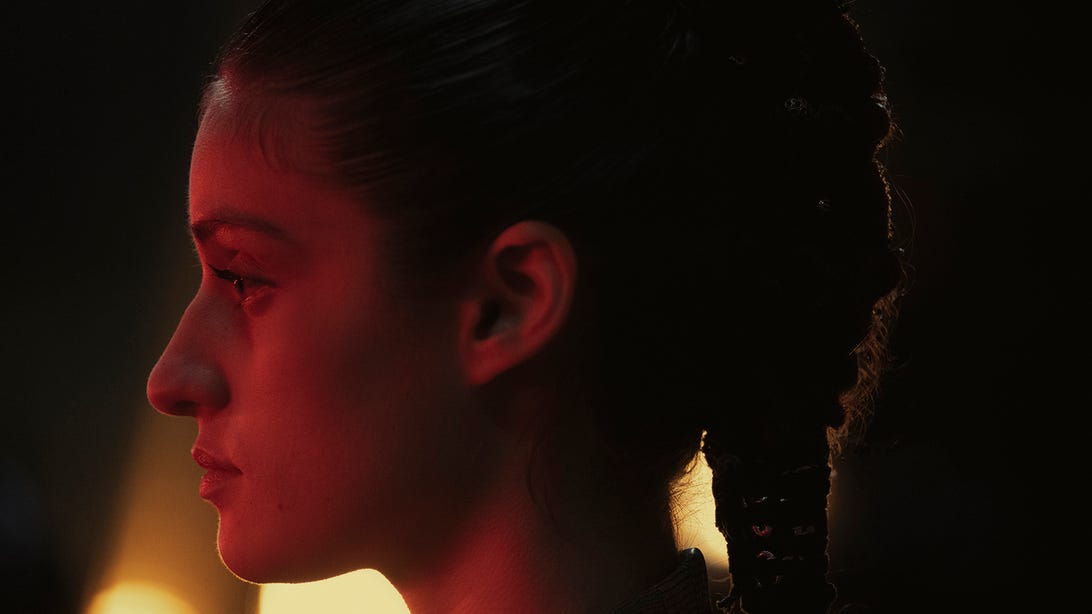
Anya Chalotra, The Witcher
NetflixBaby Yaga is a figure in Slavic and Russian mythology who may have started life as a goddess, a demon, or a fusion of the two, Baba Yaga is a popular character in folklore. She's a witch who lives in a chicken-footed hut in the woods, accessible only to those she allows to approach and enter. Her favorite hobbies are flying around in her mortar and pestle to scare the crap out of people and eating children. She can be kind when she feels like it, her dual nature consistent with the general duality present in most Slavic mythological and folklore figures though the majority of media portrayals paint her as evil with a side of trickery or mean whimsy. Baba Yaga usually appears as an elderly woman, but she can take different forms as she wishes. She doesn't care about your social norms and she will roast you on a spit and eat your face for breakfast if you get between her and what she wants.
The Witcher has done an interesting thing with Baba Yaga's duality, something most Western media hasn't been subtle or careful enough to do; they've managed to make her an antagonist without stripping away the subtleties of her complex nature. Is she cruel? She is. Does she do horrific things? Absolutely. But her "why" is legitimate and understandable and even those she hurts, those she traumatizes, those she's scarred, take a breath and acknowledge that someone did her a great wrong and that her terrible means were the only path she had left to a legitimate end.
There aren't many TV writers who are as observant and careful as all of that with their source material, who have enough faith in their story-telling abilities, and their fanbase, to know how important those small moments of contemplation are, that they can have impacts even greater than monster fights, throne room intrigue, and big reveals. Kudos all around, because this kind of trope play is what makes the very best sort of stories.
Take What's Mine and I'll Take What's Yours
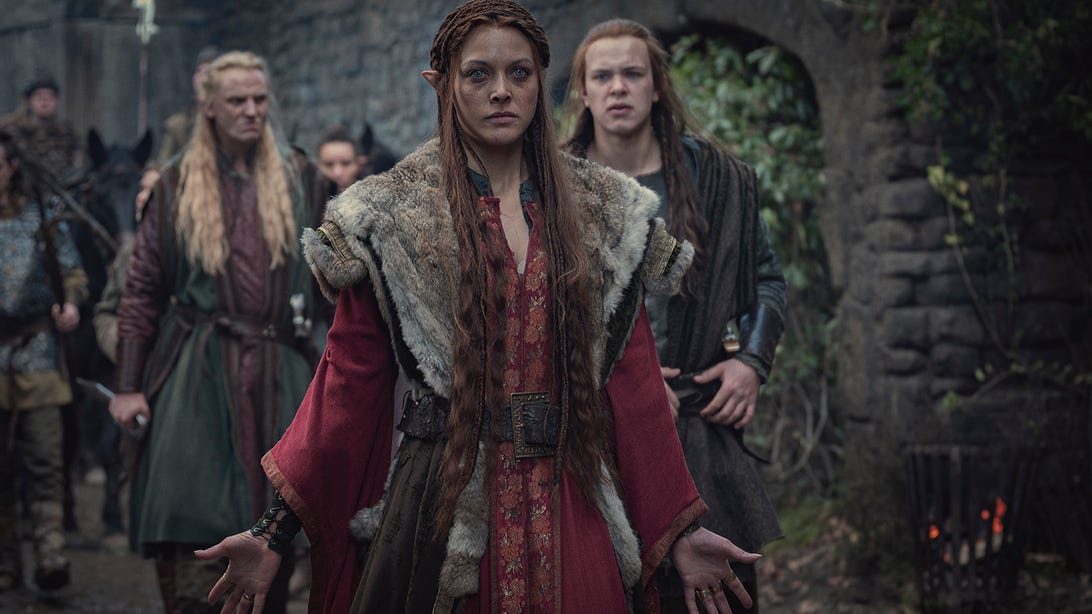
Mecia Simson, The Witcher
NetflixVery few heroes, or villains, will kill children; babies in particular, are almost unilaterally off limits. Even the worst of the worst will hesitate, often betraying allies or refusing to go forward with a plan if someone tells them to harm a child. Whether it's because they live in a universe where children are considered innocent or because the work's creators can't bring themselves to contemplate such an act, even in fiction, is a moot point; children are to be sheltered, to be protected, to be left out of vendettas, and schemes, and bloodshed.
This is what makes Francesca's (Mecia Simson) massacre of an entire town's infants not only startling but horrifying. Even more so because it was a woman perpetuating the act which is even less common in the real world than men doing so and even more rare in fiction where one is hard-pressed to find examples. Why twist this particular trope? Because doing so conveys Francesca's pain in a way no other narrative device would have been able, flaying the character's soul open in a manner that forces the viewer to acknowledge that there is nothing worse humans could have done to the Elf queen, to her family, her society, her hope, or her future.
This blatant display of agony makes the events of Episode 8 that much more personal. Draws us in that much more. And lets us know that whatever Francesca has planed, we have it coming.
There's a reason we love fairy tales and a reason that, at the same time, we're so attracted to fractured versions of those same stories. It's the same reason The Witcher universe has such a massive following. Because fantasy is exactly that; a place into which we can escape, the place about which we dream, a place that isn't anything like here but exactly like it. A place that can be anything we want: comforting, new, different, funny, cathartic, scary, magical, and on, and on, and on. Worlds where we can see old things in a new light and new things with roots in ancient ground. And most importantly, a place where we can find stories. Million and millions of stories all with common ground and all with something bright and shiny and woven into knots no one will ever be able to untangle.
Then again, why would you want to?.
The Witcher is now streaming on Netflix.